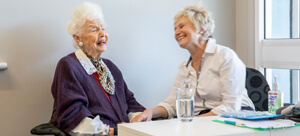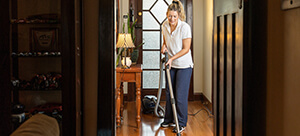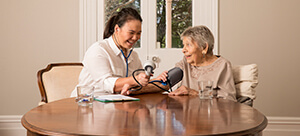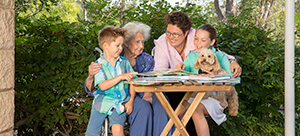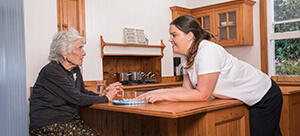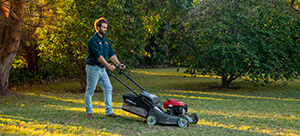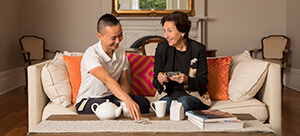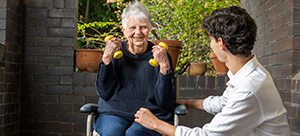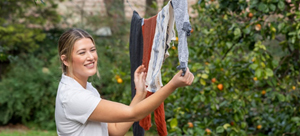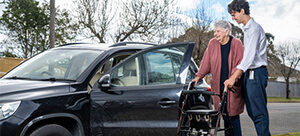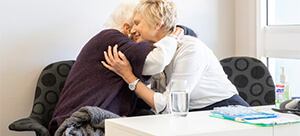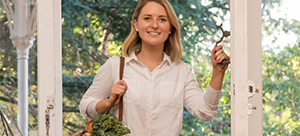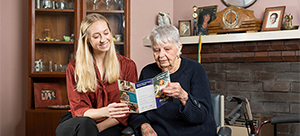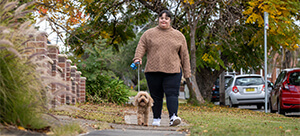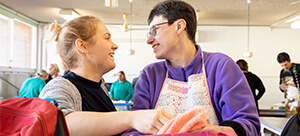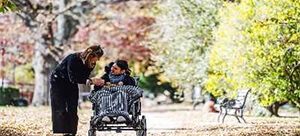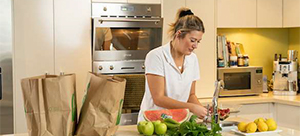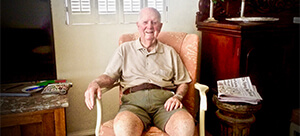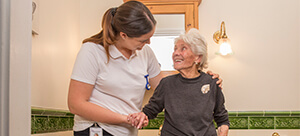Regal Community
Regal Pandemic Plan
COVID -19 PANDEMIC PLAN Version 1.0
18/03/20
| Date | Version | Name | Change |
| 18/3/20 | V1.0 | Jude Foster , Clinical Director | Implementation |
PURPOSE |
Regal has a Pandemic Policy and this document is designed to provide an operational plan for implementation in the case of a Pandemic. The plan will be living document to be amended based on public health and epidemiological advice.
Primary care is the first point of call for the majority of individuals seeking health care external to the provision of care in a hospital setting. Primary Care incorporates multiple agencies and organisations, all of which link together and will play a vital role in planning for an influenza pandemic, both at the prevention and preparedness, response and recovery phases. Whilst Regal field workforce will NOT be delivering care to people with COVID-19, during a pandemic, Hospitals will not have the capacity, or need, to care for all influenza cases, and much of the focus of pandemic flu planning will be on care that can be provided in the community. The primary care response will need to be built from the community based organisations and health care workers upwards, and not be a hospital-centric response.
A number of hospitals in the metropolitan areas may be designated as ‘flu hospitals’. Patients with suspected pandemic influenza are to be transported to these designated flu hospitals in the first instance. Regal needs to source information on the Pandemic services provided by each Hospital.
The quarantining of all persons suspected of having pandemic influenza will be based on guidelines as provided by the Chief Medical Officer of Australia and as updated from time to time. Persons suspected of having pandemic influenza will be required to be isolated, while the contacts of suspected/confirmed patients that are showing symptoms of the pandemic influenza will also be required to be quarantined. During the peak of a pandemic quarantine and monitoring of contacts of all cases on an individual basis may no longer be feasible, but the principles of quarantine should be encouraged. The purpose of home isolation and quarantine is to reduce the spread of the pandemic influenza virus, reduce the burden on hospitals, and enable people to receive care in a setting more suitable to their needs. Suspected and confirmed pandemic influenza patients should, if possible, be isolated from other members of the family (as much as is possible) until the diagnosis of pandemic influenza is excluded or the infectious period is over. Contacts of these patients should remain in quarantine (usually in their home) until 7 full days have elapsed since the last exposure to pandemic influenza, providing the contact has not become symptomatic during that time. However, this time period depends on the incubation period. Where contacts refuse to comply with quarantine voluntarily, legislative mechanisms may be required to ensure compliance. Depending on the epidemiology of the influenza strain at the time of the pandemic, the quarantine period may be longer or shorter than 7 days and will be advised by the Chief Medical Officer, Australia. Key actions in the recovery phase once the pandemic is controlled in Australia are to restore the health system as quickly as possible. The duration of the phase is dependent on how long the health system takes to return to normal and whether there is a second peak or wave(s) of a pandemic. Whilst a pandemic may have subsided, there is a very real chance that a pandemic may flare up again at short notice within 4 to 6 weeks, as this has been the pattern in previous pandemics. Nationally there will be:
- enhanced vigilance for a subsequent wave;
- increased vigilance for cases; and
- increased monitoring of the virus (to look for genetic mutations).
A Pandemic Influenza plan for people receiving care in a home setting should ensure that all care can be continued in a safe environment and in a safe manner. The plan includes:
- a responsible person has been identified to coordinate pandemic influenza planning;
- how to prioritise and maintain patient care:
- a system is in place that identifies patients who will require care during a pandemic influenza outbreak;
- a system is in place that addresses the capacity for new referrals;
- assess staffing levels in the event of a pandemic influenza outbreak;
- planning for staff shortage due to illness or family commitments;
- a monitoring system is in place for reporting influenza like illnesses amongst employees;
- a monitoring system is in place for reporting influenza like illnesses amongst clients or families/carers.
- infection control education and training for employees
- provision of Personal Protective Equipment (PPE);
- the need to maintain a supply of consumable items;
- information for patients and their families that includes preventing the spread of influenza, an adequate supply of food and medications;
- key contacts in the Department of Health, hospitals, fever clinics and other community based organisations are identified;
- information on the additional costs incurred by the organisation as the result of the outbreak;
- post-outbreak support for staff.
| DOMAIN/ISSUE | RESPONSIBILITY | ALTERNATE ARRANGEMENTS |
| BOARD OF DIRECTORS | To support the CEO to maintain solvency through the pandemic | Capital investment to augment existing funds to provide a financial buffer based on the assumption that the duration of the pandemic is predicted to be 9 months -24 months. |
| CORPORATE GOVERNANCE | Executive Chair/ CEO/Clinical Director/ Corporate Manager | Limit group exposure| The leadership will use teleconferencing, teams, zoom for meetings and limit meetings in person in a confined space. Consider the option of reducing risk by maximising the ability for team members to work at home where possible on alternate days. This will also provide a benefit for staff in not being exposed to infection during travel to and from work. |
| BUSINESS CONTINUITY | 31 Market St is closed | Redirect all call(s) to the appropriate person. Staff setup voicemail messages to call their mobile. Provide required systems access for team members to operate fromhome. Supply staff with laptops where required. Deliver training on use of teams and setup teams to communicate regularly through Teams. |
| FINANCIAL GOVERNANCE | CEO/Corporate Manager will work together to maintain liquidity through the pandemic. | investigate all tax and government assistance during the crisis. Model additional costs incurred during the pandemic. |
| CLINICAL GOVERNANCE | Pandemic Coordinator is responsible for implementing the Pandemic Plan.
|
The Pandemic Coordinator would be the person responsible for infection control in the company.
|
| PATIENT SAFETY | Clinical Director with support from the CEO is responsible for maintaining regular contact with local Public Health Units for advice/directives to promote the Safety of patients including;
|
The following staff will be required individually or as team to be responsible for clinical governance in the event the Clinical Director is not able to fulfil this role:
In the event of these staff being unwell or unable to manage this responsibility, experienced senior Nurses in the field workforce will be seconded to fulfill this role. |
| PATIENT SAFETY | Requirement that patients with upper respiratory tract infection wear masks provided by Regal Nurses/Support Workers during the service. Field workforce need to be provided with resource to demonstrate how to apply and remove a face mask & Reminding patients to observe observe cough etiquette; and keep >1 metre from others if possible. | |
| PERSONAL PROTECTIVE EQUIPMENT | Nurses are concerned or refusing to work without a supply of mask | Provide all staff with masks Follow up all consumable suppliers to place urgent order. Contact NSW Health, Public Health unit, PHN and DVA to notify themthat Regal will not be able equip workforce with PPE to continue servicesif patients have an URTI or MRSA. Determine based on demand of current customers with MRSA and thecurrent supply of masks, who should be issued with masks and whowhether some masks need to be reassigned from one Nurse to anothereg Nurse working 1 day week to a full time Nurse.Regal needs to add alerts for all patients who have MRSA now as masksmust be worn for them. Consider, on a case by case basis, if Regal will need to withdraw servicesfor people who are acutely unwell until they have recovered or soughtmedical review. |
| SAFETY OF FIELD WORKFORCE | CEO with support from the Clinical Director,Care Services Team Leader, Population andHealth Manager AND Scheduling andPlanning Manager are responsible for thesafety of the field workforce to deliverservices including:
|
Employers are required under Work Health and Safety Regulation 2017(NSW), Codes of Practice, and supporting policies and practices toprovide a safe working environment for their employees.Regal will seek to reduce the burden on Hospitals and make every effortto deliver services to patients. Regal’s Policy is NOT to outsource servicesduring a pandemic, as the quality control cannot be verified.Regal field workforce will be informed that patient screening hasoccurred in their Skedulo job card to reinforce to them and giveconfidence that Regal has quality and safety processes in place.When a Nurse/Support Worker is unable to deliver services then thefollowing process will be implemented:
Moving forward a supply of masks will need to be held for service delivery of 3 months minimum. Regal will be unable to deliver services in the absence of PPE and this is a significant risk to the company. Supply will be sourced from:
Supply of PPE to field workforce is a requirement for ongoing service delivery and links to training on application and removal of PPE will be provided to field workforce. https://www1.health.gov.au/internet/main/publishing.nsf/Content/safeuse-dvd Environmental /Referral Screening will need to extend to others who may be present in the home for the Nurse visit. Are they acutely unwell AND a. Have they had contact with a person who has confirmed COVID-19 OR Confirm emergency contacts and ensure they are accessible by staff in ROSIE. |
| OPERATIONAL MANAGEMENT | CEO is responsible for: Office cleanliness | A request placed to the building management to increase frequency andvigilance of cleaning in public areas including lift buttons, bathroomdoors, toilet doors, sink handles.
Regular cleaning of surfaces that are frequently handled in the officesuch as hand rails, lift buttons, door bells and door handles (at leastdaily) with detergent and water followed by a disinfectant (such as1000ppm sodium hypochlorite or an alcohol wipe). Should cleaningregime be increased? Provision of alcohol wipes to team to wipe down work areas. Regal will create contact details in ROSIE for each Hospital/fever clinicand Public Health Unit in ROSIE. |
| PHONES | Telephone Management | The goal is to reduce the risk for staff of travelling on public transport.
Confirm executive access to contact details for entire team including emergency contact details. Forward direct landlines diverted to respective Individual’s mobiles. If staff are unwell their number will be diverted to another staff member. Equip specific staff working remotely with phones when on call. Appointment of additional staff to assist with on call. Equip staff working at home with VPN to enable them to access all drives. |
| REMOTE ACCESS | Equip Staff to Work Remotely. | Reduce risk by maximising the ability for team members to work at home where possible on alternate days. Determine which teams can work remotely and develop a calendar for each team.
Maximise the use of laptops. Continue the move of all operating programmes to a cloud environment and provide required access for team members to operate from home. Setup the management roles in ROSIE and train managers to use this function to ensure team members are actioning tasks assigned to them. Allocate responsibility of ROSIE reports to specific team members and this will enable their managers to audit activities and team tasks each day. Team Leaders/Managers are responsible for monitoring dashboards and reports and participating in a daily team meeting. Provide parking for staff who will continue to staff the office. Weekly reviews of the structure. Roster to divide team in office/home. Staff rostered for 8-5pm, 9-6pm work from home |
| COMMUNICATIONS | CEO/Chair / Clinical Director | Provide regular communication to all team members and patients andupdate said communication so it reflects the latest guidelines from theChief Medical Officer of Australia.
Provide all patients with respiratory hygiene resources and contactdetails for COVID-19 hotline. Update Regal website regularly to inform patients/staff informationabout current screening protocols. |
| WORKFORCE MANAGEMENT | CEO/ People and Culture Manager will:
When close contact is unavoidable with people who are acutely unwell, the basic principles for infection control at home are the same as in other areas of health care. These are:
|
People and Culture Team Leader with Support of the Clinical Director.
Maintain record of COVID-19 related concerns /availability on the resource record and in the incident register/COVID-19. Maintain records of influenza vaccination on the resource record. Postage to all field workforce Health workers are likely to face special challenges brought about by the need to ration scarce resources (including attention to their patients) and of having to make difficult ethical decisions. Encourage all Nurses to get influenza vaccine. Notification by staff who are unwell is escalated to a clinician to screen them and determine if medical review is required. Informing workforce to use Teams and access to Templates and process. |
| SAFETY OF OFFICE TEAM | CEO is responsible for the Safety of office staff with support from the Clinical Director including:
|
|
| SCENARIOS | Example | Management |
| Sick field Nurse | A Regal Nurse calls Notification number and reports they have an URTI and are concerned if they should be tested? | An enquiry is made of the Nurse about whether they have had exposure to:
-A person who has travelled to ‘target’ country in past 14 days Is this advice right? Are they better to ring the COVID hotline or present at a COVID clinic? If yes, the advice is they should call GP and arrange for a PSA test and self isolate during that period. DISCUSS whether they would be paid? If no, then do not work for 28 hours and then call clinician in the office to discuss return to work if recovered. |
| INFECTION CONTROL | Preventative Request | A request placed to the building management to increase frequency and vigilance of cleaning in public areas including lift buttons, bathroom doors, toilet doors, sink handles. Regular cleaning of surfaces that are frequently handled such as hand rails, lift buttons, door bells and door handles (at least daily) with detergent and water followed by a disinfectant (such as 1000ppm sodium hypochlorite or an alcohol wipe). |
| SCHOOL CLOSURE | Regal’s field workforce are predominantly female, and many are primary carers of children so school closure could deplete the existing workforce. | Assess staff availability in light of government legislated changes or directives i.e. school closures who are able to work in usual hours. Assess staff who are able to work alternate hours rather than during day. Review current demands of essential patients and allocate available workforce to them in the short term. |
| PATIENT CONCERN | Patient calling to express concern about:
-The attending workers travel Potential to contract COVID-19 from Regal worker |
Provide key messages delivered in the communication 1 to patients. Reassure that Regal is screening all new staff and new referrals and has a pandemic response policy in place.
Regal has requested all patients notify if they are unwell with respiratory condition so a plan can be made about whether services can be delivered. Current Criteria for testing A person must have travelled to ‘target country’ in the last 14 days OR have close contact within 1.5 m or 15 minutes with a person with confirmed diagnosis. AND be acutely unwell with cough, runny nose, sneezing, fever |
| PATIENT CONCERN | Patient distressed that Regal Nurses are not wearing a mask. | Regal receives regular updates from the NSW Public Health Unit, Chief Medical Officer Australia and World Health Organisation. Regal adheres to the guidance and directives of these organisations. At present the advice is that the only people to wear masks are: Patients with an acute respiratory condition Nurses delivering care when personal protection equipment is required. There is now a world shortage of masks due to fear and the inappropriate use of them in the community. Provision of COVID-19 Hotline contact details. |
REFERENCES
2020 Department of Health|COVID-19 advice
2019Australian Health Management Plan for Pandemic Influenza Template
2020 Primary Care Management |Pandemic Influenza Sub Plan Ministry of Health SA.

